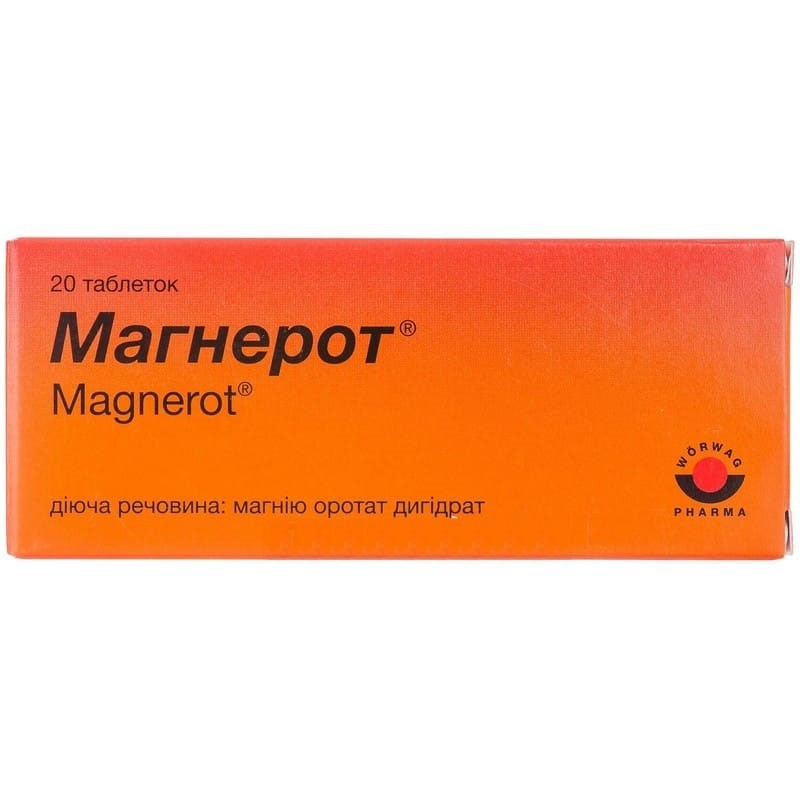



 Secure and encrypted payment processing
Secure and encrypted payment processing We ship to over 40 countries including the USA, UK, Europe, Australia and Japan
We ship to over 40 countries including the USA, UK, Europe, Australia and Japan Guaranteed refund or reship if you haven't received your order
Guaranteed refund or reship if you haven't received your ordermagnesium preparation. Magnesium is a macrocell, an important intracellular cation. takes part in reactions involving over 300 enzymes, in the regulation of cell permeability and neuromuscular transmission. Magnesium is necessary to provide many energy processes, participates in the metabolism of proteins, fats, carbohydrates and nucleic acids, and is a natural physiological calcium antagonist. controls the normal functioning of myocardial cells; takes part in the regulation of its contractile function; can reduce peripheral vascular resistance, improve coronary circulation. together with the elimination of symptoms of magnesium deficiency, magnesium demonstrates a curariform effect on cholinergic nerve endings due to a decrease in the release of acetylcholine, and can inhibit platelet aggregation.
Magnesium Orotate promotes tissue regeneration, takes part in the metabolism. In addition, the derivative of orotic acid is necessary for the fixation of magnesium on ATP in the cell and the manifestation of its action, and also accelerates the regeneration processes, improves the synthesis of pyrimidine bases, and the synthesis of nucleic acids.
Pharmacokinetics Magnesium Orotate exhibits a very low level of dissociation. Only after penetration into the cell does this substance break down into components.
About 55% of magnesium is in ionized form, 32% binds to proteins, mainly to albumin, α1- and β2-globulins and 13% are contained in the form of salts, mainly in the form of phosphates and citrates.
About 60% of the total magnesium accumulates in the bone tissue, 40% - in the intracellular space and about 1% is located in the extracellular fluid. This is one of the reasons why, based on the determination of the level of magnesium in the blood, it cannot be concluded that the overall balance of magnesium in the body is.
90% of the magnesium that accumulates inside the cells binds to ATP in the cytosol, RNA in the ribosomes, and DNA in the cell nuclei. ATP deficiency, for example, leads to a loss of magnesium. Orotic acid is able to increase the content of ATP and therefore acts as a fixative of magnesium in cells. As a result of metabolism, orotic acid is converted to uridine monophosphate, which is an intermediate product of pyrimidine metabolism.
Magnesium is excreted in both feces and urine. Also, its secretion occurs through sweat. Penetrates into breast milk.
Conditions accompanied by a deficiency of magnesium, as well as in complex treatment and for the prevention of coronary heart disease (angina pectoris, myocardial infarction), angiospasm; disorders of lipid metabolism, atherosclerosis, arteriolitis, arteritis.
Assign 2 tablets 3 times a day for 7 days, then - 1 tablet 2-3 times a day. the duration of the course of treatment is at least 6 weeks. the maximum daily dose of the drug magnerot is 6 tablets (3000 mg of Magnesium Orotate dihydrate).
Magnerot is taken 1 hour before a meal. Tablets should be washed down with a small amount of liquid (1 glass of water).
Hypersensitivity to the components of the drug. hypermagnesemia, hypocalcemia, urolithiasis (phosphate and calcium-magnesium calculi), impaired renal function, severe bradycardia and av blockade (grade I – II).
From the digestive tract: gastrointestinal disturbances (diarrhea or malformed stools).
Others: allergic reactions, skin rash are possible.
Magnerot is used for magnesium deficiency. it should be borne in mind that gastrointestinal tract diseases, the consumption of foods with a reduced magnesium content, chronic alcoholism (due to a decrease in magnesium resorption in the renal tubules and increased excretion of magnesium from the body), the use of certain drugs (oral contraceptives, can lead to a deficiency of magnesium in the body) containing estrogens, diuretics, muscle relaxants, corticosteroids, insulin), conditions that require an increased intake of magnesium (physical inactivity, stress, exercise, pregnancy). Vitamin D supplementation may interfere with calcium metabolism and cause magnesium imbalance. this may occur with prolonged exposure to the sun.with simultaneous treatment with iron preparations, tetracycline, sodium fluoride, the interval between taking magnesium preparations and these drugs should be 2-3 hours. Since the drug contains lactose, it should not be used for hereditary galactose intolerance, lappase deficiency or malabsorption of glucose-galactose.
Use during pregnancy and lactation. The use of the drug during pregnancy and lactation is possible, since during this period the need for magnesium increases significantly. If its content in the body is not balanced, this can lead to serious complications for both the mother and the child.
Children. The effectiveness and safety of the drug in children have not been established, therefore, the drug should not be assigned to this age category.
The ability to influence the reaction rate when driving vehicles or working with other mechanisms. There are no special warnings, but it should be borne in mind that magnesium has a sedative effect on the central nervous system.
Magnesium, which is part of magnerot, while taking it complicates the absorption of iron, tetracycline and sodium fluoride.
As a drug, magnesium can enhance the effect of drugs that depress the central nervous system (sedatives, antipsychotics, tranquilizers), as well as antiarrhythmic, antihypertensive drugs.
It reduces the severity of magnesium deficiency and reduces the risk of related complications when taking diuretics, aminoglycosides, cisplatin, cyclosporine, amphotericin, methotrexate, and laxatives.
With full renal function, magnesium intoxication is rare.
With magnesium intoxication, symptoms of the central nervous system (nausea, vomiting, obstruction of the urinary tract, constipation, paralysis of the respiratory system) and cardiac symptoms (worsening of the atrioventricular conduction and conduction of excitation from the ventricles), as well as curariform effect on neuromuscular conduction, are noted. Magnesium intoxication is treated iv in the introduction of calcium (100-200 mg Ca2+ for 5-10 minutes). Additionally, hemodialysis, peritoneal dialysis, and artificial respiration may be needed.
In the original packaging at a temperature not exceeding 25 ° C.